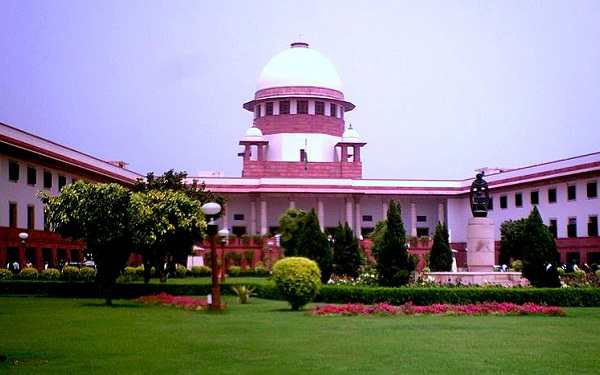The Government of India through the Ministry of Home Affairs (MHA) has filed an affidavit in the Supreme Court of India stating that the Defamation Laws are a must and they cannot be scrapped. This affidavit has been filed in response to petitions filed under Article 32 of the Constitution of India, challenging the validity of the sections of Criminal Defamation.
 The petitioners in the case are Senior Political Leaders – Subramanian Swamy, Rahul Gandhi and Arvind Kejriwal. The validity of the defamation law (Sections 499 & 500 IPC) has been challenged in the petitions contending that it is ultra vires of the Fundamental Right of Free Speech and Expression as given under Article 19(1)(a) of the Constitution of India. The petitioners state that this particular law is ultra vires of the Constitution and it denies the right of Free Speech and Expression.
The petitioners in the case are Senior Political Leaders – Subramanian Swamy, Rahul Gandhi and Arvind Kejriwal. The validity of the defamation law (Sections 499 & 500 IPC) has been challenged in the petitions contending that it is ultra vires of the Fundamental Right of Free Speech and Expression as given under Article 19(1)(a) of the Constitution of India. The petitioners state that this particular law is ultra vires of the Constitution and it denies the right of Free Speech and Expression.
Criminal Defamation as given in the IPC is punishable upto 2 years of imprisonment. The Defamation laws have been widely criticized and have been claimed to be ultra vires of the constitution. The Supreme Court has to decide about their validity.
The Central Government, supporting the aforementioned defamation laws, has stated that Article 19(1)(a) is not an absolute right given to the citizens and it is subject to certain reasonable restrictions as have been mentioned under article 19(2). It is pertinent to point out that Article 19(2) specifically mentioned “defamation” in respect of which reasonable restrictions can be imposed on the right to freedom of speech of expression; the relevant extract of Article 19 is reproduced below:
“19. Protection of certain rights regarding freedom of speech, etc.—(1) All citizens shall have the right—
(a) to freedom of speech and expression;
* * * * * *
(2) Nothing in sub-clause (a) of clause (1) shall affect the operation of any existing law, or prevent the State from making any law, in so far as such law imposes reasonable restrictions on the exercise of the right conferred by the said sub-clause in the interests of the sovereignty and integrity of India,] the security of the State, friendly relations with foreign States, public order, decency or morality or in relation to contempt of court, defamation or incitement to an offence.”
It said that the Constitution Makers had the defamation laws in their mind which is why there are reasonable restrictions imposed on the Freedom of Speech and Expression given under article 19, and that the defamatory laws come under the aforementioned reasonable restrictions.
The Central Government in the affidavit also countered the claims of the petitioners that the Criminal Defamation Laws are arbitrary and said that there are exceptions given under section 499 that are reasonable and clearly classify what speech is defamatory and what is not. Quoting from the affidavit, “These sections do not take within their ambit speech that has a legitimate social utility.”
The MHA has even stated that under sections 499 and 500 of IPC, only the speech which is to harm the reputation of another person without having any social utility has been criminalized and not all other types of speech. The MHA also maintained that civil defamation can never be a substitute for criminal defamation and if criminal defamation is scrapped, civil defamation would be no remedy to the people as they take more time than the former.
The Central Government differentiated between the defamation laws and the much criticized section 66A of the IT act and said that under Section 66A arbitrary power of arrest was given, whereas for a case to be made out under the defamatory laws, various conditions have to be satisfied.
Senior Advocates Mr. K. Parasaran and Mr. T.R. Andhyarujina have been appointed by the Supreme Court as amicus curie in the case.

